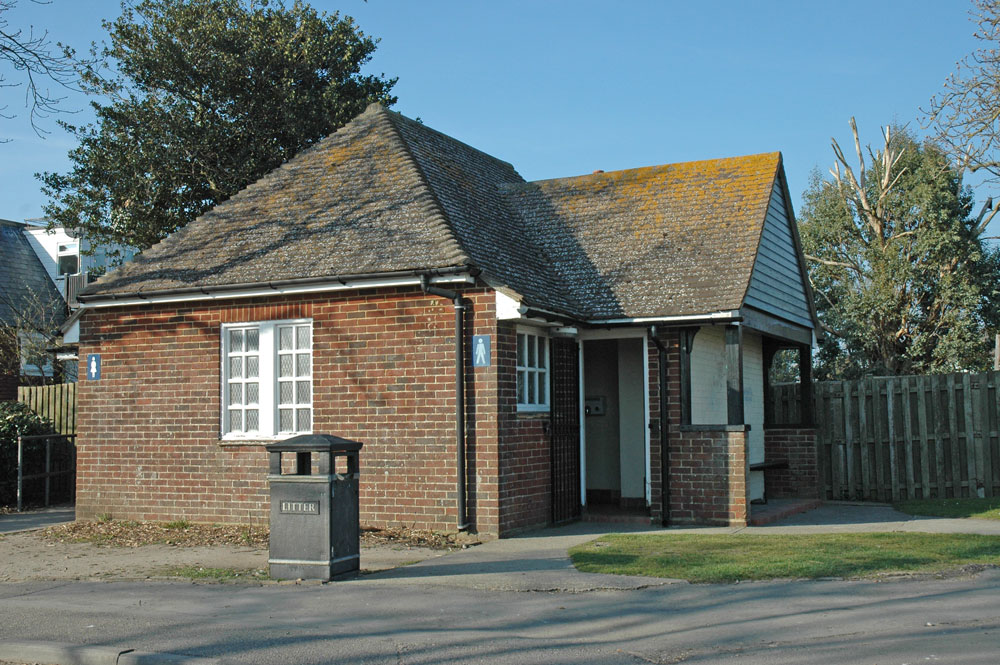A packed parish meeting was held in Winchelsea on Monday night to discuss Icklesham Parish Council’s controversial proposal to take a 99-year lease on the car park and toilets at Rye Harbour. The meeting was called by residents of Winchelsea ward, who were unhappy about the way the council had handled the proposal. They argued that all wards should have a say on a scheme that, on the basis of numbers available, is likely to result in an increase in parish council tax of at least 20 per cent but probably much more.
Residents were concerned that they would effectively be writing a long-term open-ended cheque to Rother District Council. Their intention was to call a parish poll – a parish-wide ballot – to give a say to electors in all four wards.
Some 80 people attended, too many to hold them all in the Court Hall meeting room. The attendance was the largest for any parish meeting in living memory. It dwarfed the number who came to the annual parish meeting called by Icklesham Parish Council last month (less than 20, mainly councillors and clerks). Most of the audience came from Rye Harbour, some by community bus.
There were complaints that a larger hall should have been provided. However, Chris Mears, one of the Winchelsea electors who called the meeting, commented: ”Icklesham Parish Council could have asked us to shift the venue. We would have been perfectly happy to do so. But they didn’t, despite discussing at their last meeting the likelihood of large numbers of Rye Harbour residents coming along.”
The meeting did not turn, as some had felt it might, into a confrontation between Rye Harbour residents supporting the leasing proposal and Winchelsea residents opposing it. Most Rye Harbour residents were sceptical of the proposal and agreed that a proper case in favour had not been made by the parish council, which was criticised for failing to put together a proper business plan and budget, despite discussing the issue for two and a half years. The parish council chair, Cllr Peter Turner, blamed Rother, which had taken a long time to offer a draft lease.
Representatives of Rye Harbour village hall and Sussex Wildlife Trust argued that the car park was an economic benefit to the whole district and could be a good source of revenue. It was claimed that data collected on behalf of the trust put the number of cars using the car park at 210 per day. Although the trust cautioned against projecting these figures into a reliable revenue stream, it was felt that, if a modest charge were to be made, there might be enough money to pay for maintaining both the car park and the toilet. However, the trust agreed that this idea would have to be properly investigated.
The real priority for Rye Harbour residents was action to solve parking and traffic problems. Many did not think that the parish council taking on the lease of the car park would have any impact on these problems. Cllr Sue Lyward warned that Rother would lease the car park to a commercial operation, who would impose high parking charges, which would encourage visitors to park in the streets of Rye Harbour. But, the chair made clear, Rother has no plans to do this. This prompted the question as to why the parish council wanted the lease. When asked why the council had not been looking at the idea of dedicated residents’ parking to address the real problem, the chair argued that this was not practicable but was challenged by members of the audience.
More transparency agreed
Confusion about the council’s proposal was widespread. Many residents complained that they knew little about it. This was compounded at the meeting by disagreement over the council’s minutes. These say that, in January, the council had agreed to the terms of the lease offered by Rother. The council chair stated that the council had agreed only to the terms but not the lease itself. John Rodley from the Winchelsea Corporation argued that the council should ignore its minutes. He also opposed a parish poll, promoting the suggestion that public ballots were a democratic device and as such not favoured by members of Winchelsea’s unelected corporation.
In response to suggestions from the floor, the parish council chair agreed that the council would try to be more transparent and publish an account of what was proposed and what had been done to date. Councillors would also draw up a road map of how they proposed to progress the issue, setting out a schedule of dated milestones. They also agreed to form a working group, which would include residents, to properly investigate the proposal. In return, the organisers of the parish meeting agreed to defer a parish poll but warned that they would call one in the future if the council did not manage the issue in a more competent and transparent way.
Cllr Jacqueline Stanford urged Rye Harbour residents to beware of ” hidden agendas” to split the parish. She also argued that, despite the fact that all wards would have to pay for the proposed scheme, only Rye Harbour residents should have a say in approving any proposal. Her reasoning: only Winchelsea residents had been able to vote on a proposal to turn off its streetlights from midnight, so only Rye Harbour residents should be able to vote on the Rye Harbour car park.
This drew the observation that the Winchelsea proposal had been to save £760 a year, whereas the Rye Harbour proposal was to spend an extra £20,000 or more a year. Stanford’s use of numbers to support her objection to the cost of a parish poll was also criticised. Some felt that to pay up to £2,000 for a poll would be money well spent if it stopped the council wasting more than £2 million.



